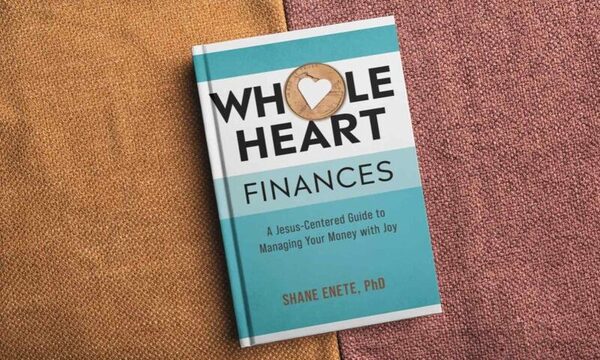Money is one of the leading causes of anxiety for Americans. At the root of money anxiety is the false belief that we are meant to bear full financial responsibility of our lives. The truth is we lack full control over our lives, and our anxiety grows because there is always a chance that we will fail in our commission.
And to make matters worse, the one person who is in control, who can truly help us in the midst of our uncertain lives, is the one person we desperately try to ignore. It is Jesus who will help us, and, yet, we fundamentally don't trust Him with our money. While I would never actually admit to thinking that Jesus is a terrible person to ask for financial advice, I often act that way.
After I purchased my first home, I was anticipating a large tax refund because of the great tax benefits given to homeowners. Sure enough, when tax season came around, I calculated a rather large tax refund, and I got very excited. Oh, all the things I was going to do with my refund! Many home improvement projects, long relegated as “too expensive,” were now going to be green-lighted!
A few days before the refund arrived, I went for a 5 mile run. After the 1-mile marker, I remember having a disturbing thought. Um, I haven’t asked Jesus for wisdom regarding spending this refund. As soon as this thought entered my mind, I remember launching into a grand, high-level excuse, arguing that tax refunds should be excluded from Jesus because it involves receiving income that has already been tithed (I’m sure Jesus was chuckling at this point).
As I ran, I grew more and more agitated. It took me until mile 4 before I finally surrendered, and said, “alright God, let me present this money to you, as your money, and ask you for wisdom and guidance.” The moment this happened, a heavy weight was taken off my shoulders. I felt free to both worship the Lord in that moment, and spend the money, under God’s supervision, under a banner of grace.
I would encourage you, as you make financial decisions, to seek the guidance and wisdom of Jesus. One practical way to do this is to keep a monthly account of how you are spending money (I like to use mint.com). At the end of every month, spend some time categorizing all of your expenses and then present your spending summary to Jesus during a quiet time.
Make this a “money quiet time,” centered on the grace that has been given to you, both financially and spiritually. Let your money quiet time always begin with the truth that, “He who did not spare his own Son, but gave him up for us all—how will he not also, along with him, graciously give us all things?” (Romans 8:32, NIV). A regular money quiet time provides a respite from money anxiety. It does this primarily through allowing us to slowly move our eyes from our money to the Giver of that money.
 Biola University
Biola University

.jpg)
.jpg)

